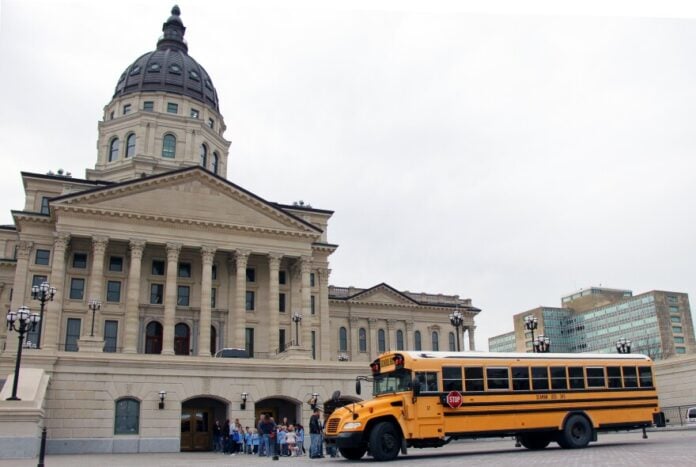By Jeffery Fogg
This is Topeka | Best Local News | What’s Happening in Topeka
Last night, former President Donald Trump claimed to have signed an executive order to shut down the U.S. Department of Education—an action that, if it were real or legally binding, would not only trigger a constitutional crisis but also devastate education funding in Kansas and across the country.
Let’s be clear: a U.S. president cannot unilaterally eliminate a federal agency created by Congress. The Department of Education was established in 1979 by an act of Congress and signed into law by President Jimmy Carter. Like any other lawfully created agency, its existence is protected by statute. That means only Congress—not the executive branch—can dismantle it.
Constitutional Roadblocks
The Constitution sets out a separation of powers for a reason. Article I gives the legislative branch (Congress) the power to make and repeal laws, allocate funding, and establish federal agencies. The president’s job is to execute those laws—not erase them.
Even if an executive order attempted to begin the process of “winding down” the Department of Education, it would still require legislative approval, funding changes, and likely court challenges. In short, it would be symbolic at best—and unconstitutional at worst.
Why It Matters for Kansas
Beyond the legal argument, let’s talk about the real-world consequences, especially here in Kansas.
In 2023, Kansas received over $650 million in federal education funding, including Title I grants for disadvantaged students, special education funding under IDEA, school nutrition programs, and Pell Grants for college students. These funds don’t just pad budgets—they’re the lifeline that keeps rural schools open, supports kids with disabilities, feeds students from low-income families, and helps Kansans afford college.
Eliminating the Department of Education would disrupt or defund all of that overnight. And let’s not forget: Kansas is a rural state with many school districts that rely heavily on federal aid to survive. Shuttering the department would push the burden to already overstretched local taxpayers or force districts to make deep cuts to staff, programs, and services.
What’s Really Going On
Trump has floated this idea before as part of a broader agenda to return control of education to the states. While “local control” is a popular political slogan, the truth is that the federal government plays a critical role in ensuring equity, civil rights protections, and baseline standards nationwide.
In practice, dissolving the Department of Education would not empower local communities—it would abandon them.
Bottom Line
An executive order can’t undo Congress. The Constitution doesn’t give the president the authority to dismantle federal agencies at will, and doing so—if ever attempted—would face immediate legal challenges. But even the rhetoric has consequences. Suggesting we gut the very agency that helps fund and regulate education in Kansas is not only dangerous—it’s deeply out of touch with the needs of the families, students, and educators who rely on it every single day.





